Embark on an unforgettable journey along the legendary Nile River with Sonesta Nile Cruises. These floating boutique hotels combine sophisticated comfort with immersive cultural exploration, allowing you to witness Egypt’s magnificent treasures from the serenity of a premium river vessel. From the awe-inspiring temples of Luxor to the tranquil beauty of Aswan, Sonesta cruises offer the perfect balance of relaxation and discovery as you sail the same waters that nurtured one of history’s greatest civilizations.
The Sonesta Nile Cruise fleet represents the finest options for discerning travelers seeking an exceptional Nile experience. Each vessel combines elegant design, superior amenities, and attentive service to create a floating sanctuary from which to explore Egypt’s treasures. With typically 40-60 cabins per ship, these vessels offer an intimate atmosphere while providing generous public spaces for relaxation and socializing. Each has its own distinctive character and special features, allowing us to match you with your ideal floating home for this once-in-a-lifetime journey.
Discover Egypt’s ancient wonders aboard the Sonesta Nile Goddess Cruise, where elegance meets history.
3 Nights Every Friday from Aswan
4 Nights Every Monday from Luxor
Private or Share Group Tours
Explore the Nile in luxury on the Sonesta Moon Goddess, where sophisticated comfort meets ancient wonders.
3 Nights Every Friday from Aswan
4 Nights Every Monday from Luxor
Private or Share Group Tours
Sail the Nile in style aboard the Sonesta Star Goddess, where luxury meets the allure of ancient Egypt.
3 Nights Every Friday from Aswan
4 Nights Every Monday from Luxor
Private or Share Group Tours
Embark on the Sonesta Sun Goddess, where Egypt’s ancient splendor meets luxurious modern cruising.
3 Nights Every Friday from Aswan
4 Nights Every Monday from Luxor
Private or Share Group Tours
Journey in elegance on the Sonesta St. George I: a Nile cruise offering opulence and historic charm.
3 Nights Every Friday from Aswan
4 Nights Every Monday from Luxor
Private or Share Group Tours
Sonesta Nile Cruises represent the pinnacle of Egyptian river travel, combining the intimacy of boutique accommodations with the excitement of ever-changing riverside vistas. With typically 50-70 guests attended by attentive staff trained in international hospitality standards, these vessels create an ideal setting for experiencing Egypt’s treasures. Every aspect of your journey is carefully orchestrated, from elegant staterooms to expertly guided excursions, delivering a seamless blend of comfort and cultural immersion that distinguishes the Sonesta experience.

Sonesta Nile Cruises feature thoughtfully designed cabins and suites that serve as your private sanctuary on the river. Ranging from 20 to 45 square meters, these elegant retreats offer floor-to-ceiling windows or private terraces that frame the ever-changing Nile panorama. Each room features premium bedding, tasteful décor blending contemporary luxury with subtle Egyptian influences, and marble-accented bathrooms with deluxe amenities. Twice-daily housekeeping ensures impeccable conditions, while thoughtful touches like evening turndown service with local sweets enhance your journey.
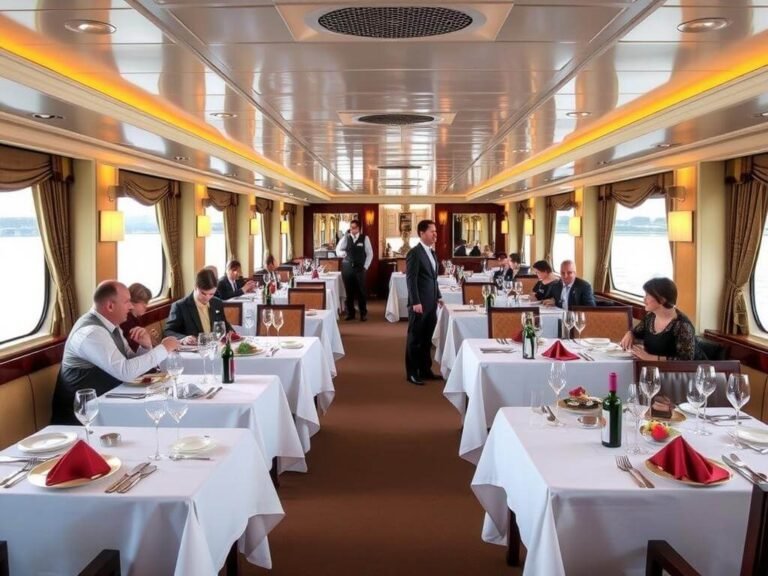
Dining aboard Sonesta Nile Cruises is one of the highlights of the journey. Skilled chefs craft delightful meals that make every day special. Start your morning with rich breakfast buffets featuring both international favorites and traditional Egyptian dishes. Lunch includes fresh salads, grilled options, and regional flavors, while dinner offers elegant à la carte menus inspired by local and global cuisine. Special dietary requests are handled with care and creativity. Outside the main restaurant, guests can enjoy afternoon tea on the sun deck or sip cocktails in the chic lounge bar while watching the sunset over the Nile.
What makes a Sonesta Nile Cruise truly exceptional is the access it provides to Egypt’s most spectacular monuments. Our carefully planned excursions ensure you experience these ancient wonders in comfort and with expert guidance. Each site visit is led by professional Egyptologists who bring scholarly insight and engaging narratives to these remarkable places, transforming stone monuments into vivid chapters of human history. Our premium coaches feature comfortable seating and air conditioning, making even summer visits pleasant and ensuring you can focus entirely on the wonders before you.
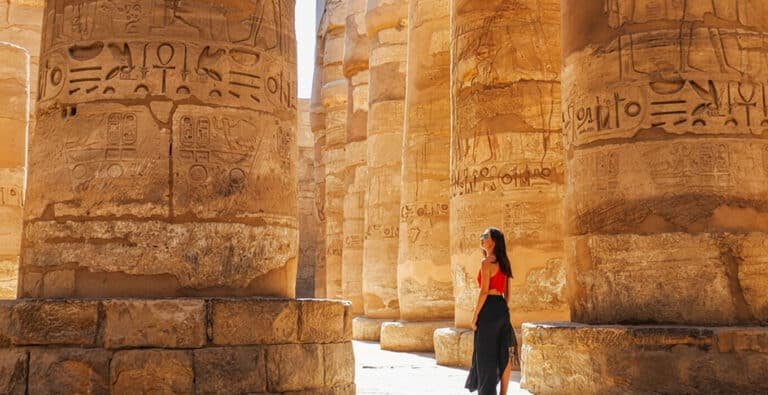
Experience the awe-inspiring scale of Karnak Temple, the largest religious complex ever constructed. Your expert guide will navigate you through this 247-acre sacred city, explaining how it grew over 2,000 years as successive pharaohs added their own monuments. Marvel at the Great Hypostyle Hall with its 134 massive columns, many still retaining their original vibrant colors. Your Sonesta Nile Cruise excursion includes visits to less-frequented areas like the Sacred Lake and the impressive statues of Ramses II, with perfectly timed visits to avoid the largest crowds and harshest midday sun, allowing for a more intimate experience of this magnificent site.
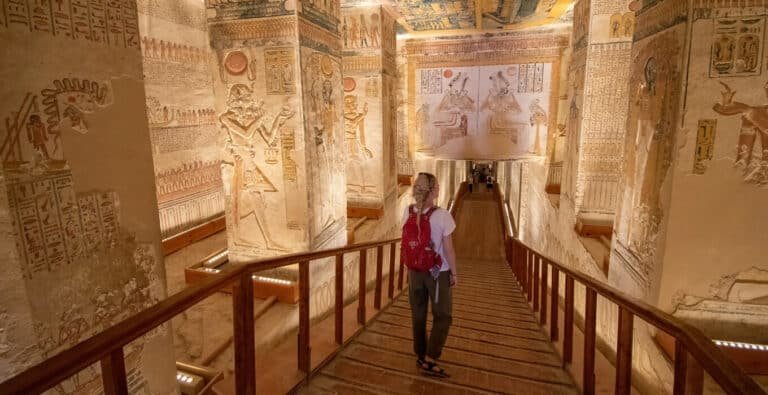
Delve into the Valley of the Kings, where for nearly 500 years, Egypt’s pharaohs constructed elaborate underground tombs filled with treasures and decorated with intricate scenes to guide them to the afterlife. Your Sonesta Nile Cruise package includes entry to three tombs (rotating according to conservation schedules), with your Egyptologist helping you select the most impressive examples based on your interests. Marvel at the remarkably preserved colors in tombs like Seti I and Ramses VI, where scenes of the pharaoh’s journey through the underworld remain vibrant after three millennia, offering an unparalleled glimpse into ancient Egyptian beliefs about death and rebirth.
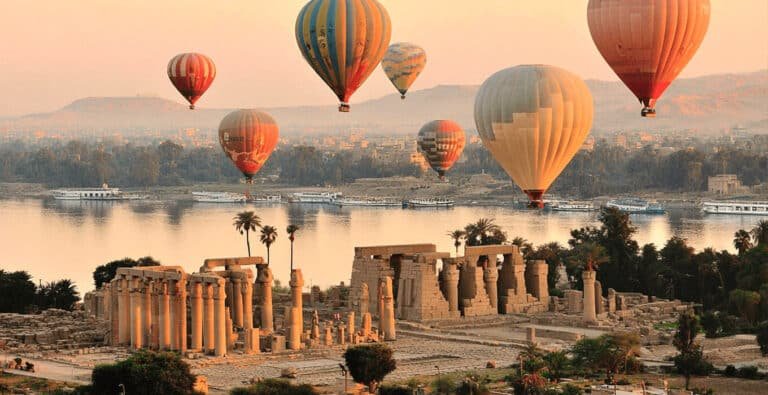
Enhance your Sonesta Nile Cruise with an optional hot air balloon experience over Luxor’s West Bank. Rising before dawn, you’ll witness the sunrise illuminating the monuments and landscape from a breathtaking perspective. As you float silently above the Valley of the Kings, Hatshepsut’s Temple, and the Colossi of Memnon, your pilot provides geographical context while allowing the majesty of the scene to speak for itself. This peaceful one-hour journey offers unparalleled photographic opportunities and a profound appreciation for how the ancient Egyptians integrated their monuments with the natural landscape, creating a memory that will remain with you long after your cruise concludes.
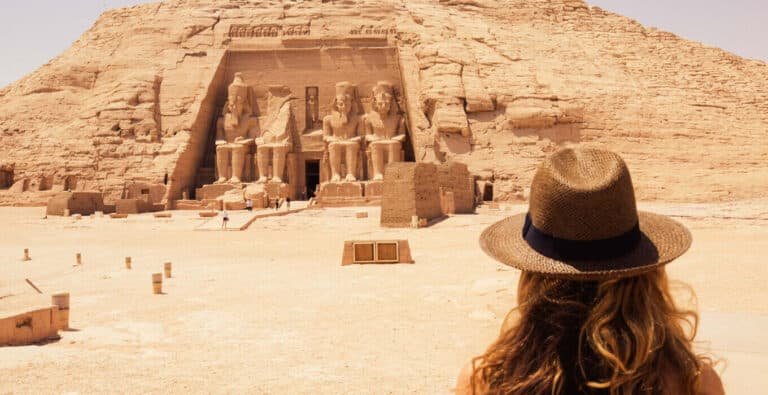
While not included in standard itineraries due to its remote location, Sonesta Nile Cruises offer well-organized optional excursions to the magnificent temples of Abu Simbel. Travel in comfort aboard a modern air-conditioned coach or opt for a convenient flight from Aswan. Upon arrival, marvel at the four colossal statues of Ramses II guarding his temple, carved directly into the mountainside as a display of pharaonic power. Your guide will explain both the original construction and the remarkable 1960s UNESCO project that saved these temples from Lake Nasser’s rising waters by relocating them piece by piece to higher ground, preserving this masterpiece for future generations.
Life aboard Sonesta Nile Cruises balances enriching cultural activities with ample opportunities for relaxation and indulgence. Between fascinating shore excursions, you’ll enjoy thoughtfully curated experiences designed to enhance your connection to Egypt while providing the comfort and service expected of premium river cruising. From educational presentations to wellness offerings, each aspect of onboard life contributes to a journey that satisfies both mind and body while creating memories that will last a lifetime.
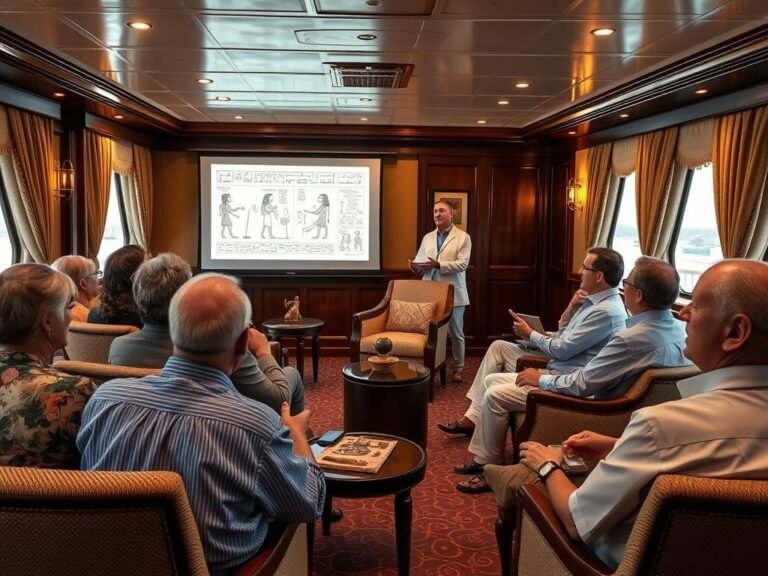
Sonesta Nile Cruises feature engaging educational programs that deepen your appreciation of Egypt’s extraordinary heritage. Professional Egyptologists offer fascinating presentations on topics ranging from hieroglyphics and mythology to daily life in ancient Egypt, using visual aids and replica artifacts to bring history vividly to life. Interactive workshops might include basic hieroglyphic writing or traditional Egyptian cooking demonstrations. Evening entertainment often features authentic performances of Nubian music, graceful tanoura whirling dances, or elegant classical music, creating memorable cultural experiences in comfortable surroundings that enhance your understanding of Egypt’s rich cultural tapestry.
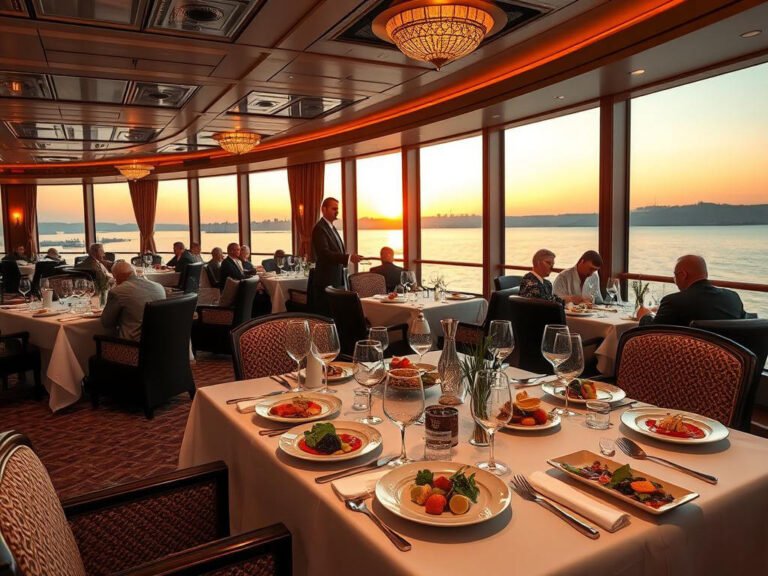
Dining aboard Sonesta Cruises is a delightful exploration of both international excellence and authentic Egyptian flavors. Breakfast and lunch typically feature lavish buffets with live cooking stations, while dinners alternate between sophisticated buffets and elegant à la carte service. Special themed evenings might include a traditional Egyptian feast with local specialties like koshari, flavorful molokhia, and delicate konafa desserts. Professional chefs use fresh, high-quality ingredients, accommodating dietary requirements with creative alternatives. beverages typically include mineral water, tea, and coffee, with premium wine and spirit packages available for those wishing to enhance their dining experience.
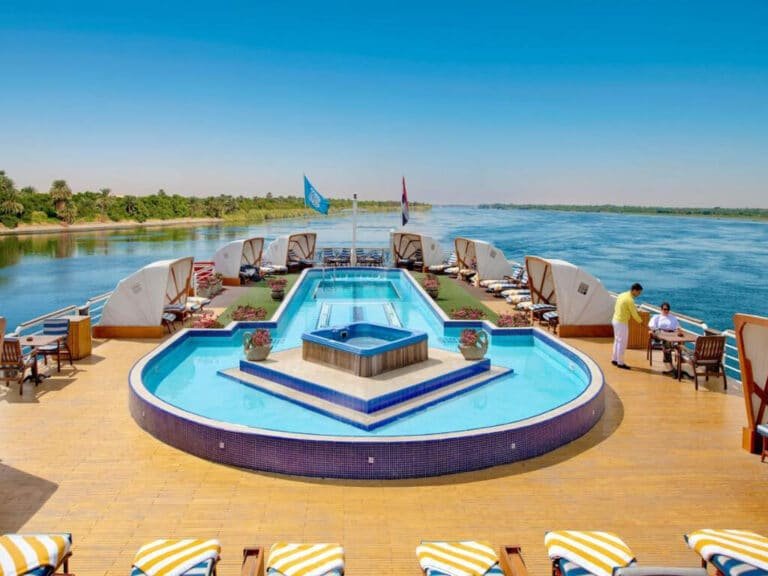
The sun deck of Sonesta Nile Cruises serves as an open-air living room where you can relax while watching the timeless Nile landscape unfold. Comfortable loungers with fresh towels invite leisurely afternoons, while swimming pools offer refreshing relief from the Egyptian sun. Attentive staff circulate with cool beverages and light refreshments throughout the day. For indoor relaxation, find a quiet corner in the elegantly appointed lounge with a book from the ship’s library, or enjoy a massage treatment using aromatic oils inspired by ancient Egyptian wellness traditions. These peaceful moments between excursions create a perfect balance to the active exploration of monuments.
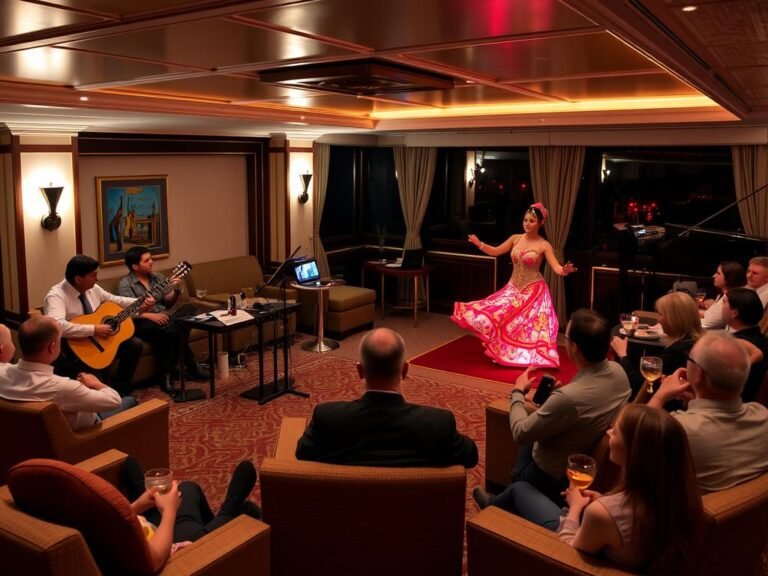
As the sun sets over the Nile, Sonesta cruise vessels transform into elegant evening retreats. Begin with pre-dinner cocktails in the panoramic lounge, perhaps enjoying a signature Egyptian hibiscus karkadeh or classic international options prepared by skilled bartenders. After dinner, entertainment varies nightly and might include mesmerizing tanoura performances where dancers spin in colorful illuminated costumes, talented musicians playing both traditional and contemporary pieces, or perhaps a Galabiya party where guests enjoy wearing traditional Egyptian attire. For those preferring quieter evenings, the starlit sun deck offers a peaceful setting for contemplating the Nile’s timeless beauty.
While standard Sonesta Nile Cruises offer exceptional experiences, we also provide opportunities to further elevate your journey with carefully curated optional enhancements. These premium additions allow you to personalize your Egyptian adventure according to your specific interests and preferences. From private excursions to special celebrations, these thoughtfully designed experiences add extra dimensions of discovery, comfort, and memorability to your Nile voyage aboard Sonesta’s distinguished fleet.

Enhance your Sonesta Nile Cruise with private guided excursions for more flexibility and personal attention. Instead of joining group tours, explore with your own Egyptologist who tailors the pace and focus to your interests—whether photography, architecture, mythology, or daily life in ancient Egypt. Private tours can include lesser-visited sites like the tombs of nobles in Luxor or the colorful Nubian village near Aswan, offering unique experiences beyond the usual tourist route.
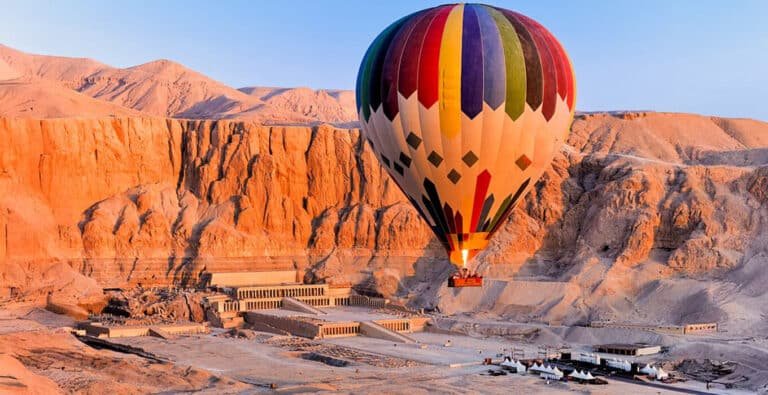
Discover Egypt’s ancient wonders from a breathtaking new perspective with optional aerial adventures. A hot air balloon flight over Luxor at dawn reveals the majestic temples aligned along the Nile and tombs resting in the western hills. For a truly premium experience, helicopter flights from Luxor or Aswan provide spectacular panoramic views of landmarks like the Temple of Hatshepsut or the High Dam and Lake Nasser, with guided commentary through headsets.

Celebrate special occasions in style aboard Sonesta Nile Cruises. Anniversary couples can enjoy a candlelit dinner on the sun deck under the stars, with custom menus and fine wines. Birthday surprises include decorated cabins, custom cakes, and recognition during evening entertainment. For milestones, private cocktail receptions or exclusive lounge gatherings can be arranged. Our attentive team ensures every detail is perfect, creating lasting memories along the timeless Nile.
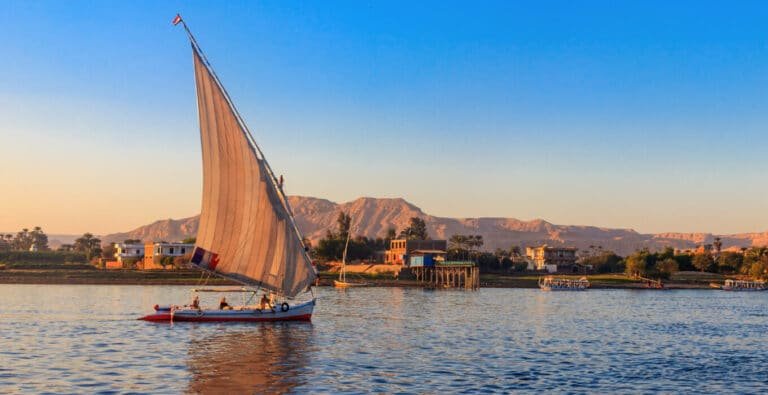
Complement your cruise with a traditional and relaxing felucca sailing trip. These wooden boats with triangular sails have glided along the Nile for centuries. Guests enjoy cushioned seating, refreshments, and attentive service while sailing around Aswan’s islands or toward Luxor’s Banana Island. Peaceful and silent, these journeys offer a serene connection to Egypt’s enduring bond with the Nile.
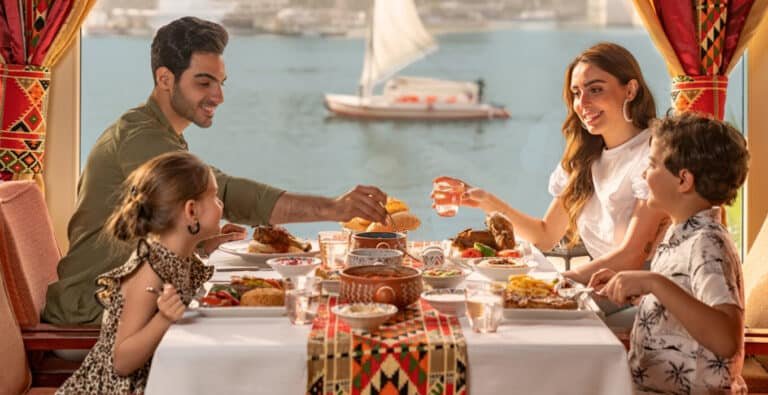
Experience Egypt’s flavors through interactive culinary sessions aboard Sonesta Cruises. Join cooking demonstrations where chefs share the secrets of dishes like koshari or stuffed vine leaves. Special tasting menus showcase regional specialties—from Alexandria’s seafood to Aswan’s Nubian cuisine—each paired with commentary. Wine tastings of Egyptian vineyards reveal delightful surprises for food lovers.

Enhance your Sonesta Nile Cruise with wellness experiences designed for relaxation and renewal. Enjoy spa treatments with aromatic oils like jasmine, lotus, and frankincense, known since pharaonic times. Private yoga or meditation sessions on the sun deck at sunrise or sunset offer peace and reflection. For active guests, personal training in the fitness center can be customized to your routine, ensuring you return home refreshed.
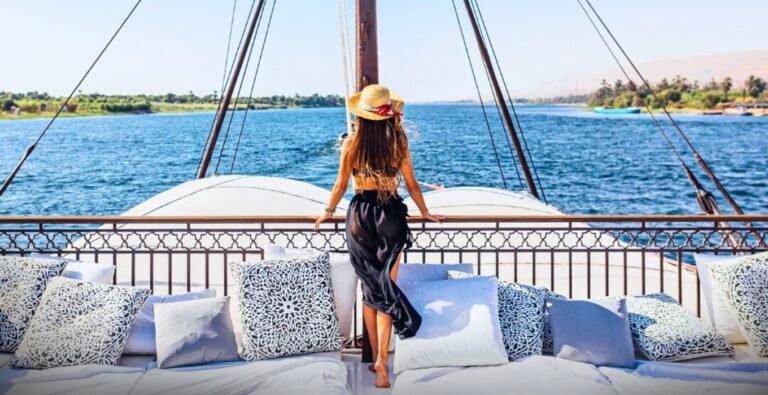
Best time to enjoy a Sonesta Nile Cruise is from Sonesta Nile Cruises runs from October to April when the weather is pleasant for exploring Egypt’s ancient sites. December to February brings ideal temperatures (21–27°C / 70–80°F) but is the busiest period, so booking 6–9 months ahead is advised. October–November and March–April also offer great conditions with fewer crowds at temples and monuments. Summer cruises (May–September) provide excellent value, with powerful air conditioning and excursions planned for early morning and late afternoon to avoid the midday heat, making cruising on the Nile enjoyable throughout the year.
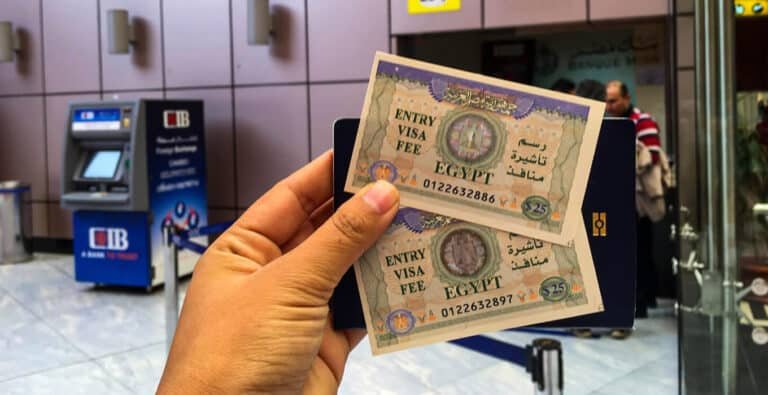
Most visitors to Egypt require a tourist visa, which can be obtained upon arrival at Egyptian airports for many nationalities (currently $25 USD) or in advance through Egyptian consulates. Our Sonesta Nile Cruise packages include a professional meet-and-assist service at airports to facilitate the visa process and expedite immigration procedures, ensuring a stress-free arrival. For the smoothest entry experience, we recommend having passport-sized photos available, paying for visas in USD cash, and keeping travel documents easily accessible. Passports must be valid for at least six months beyond your entry date to ensure a seamless and hassle-free entry into Egypt.
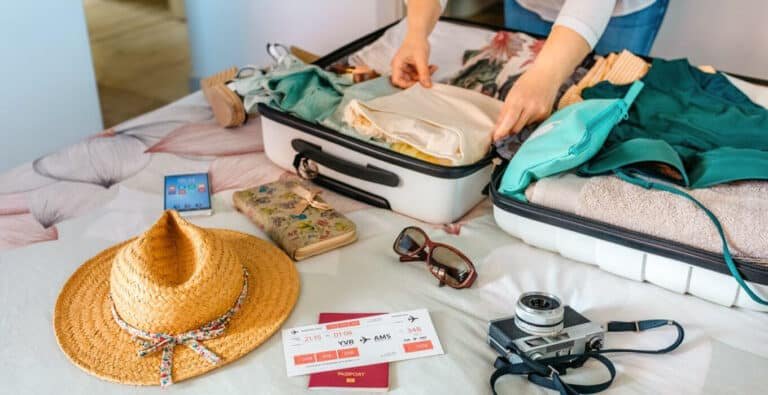
For your comfort and to respect local customs, we suggest:

While gratuities for the cruise staff are at your discretion, we provide the following guidelines to assist you:
Many guests give tips at the end of the cruise. Reception has envelopes available. Some packages include pre-paid tips, so check your booking.
The best month for a Nile cruise is generally between October and April when the weather is pleasantly mild, making it perfect for sightseeing. During these months, you can comfortably explore the treasures of Egypt without the scorching summer heat. This period offers ideal conditions for River Nile Cruises all inclusive, allowing you to enjoy both the onboard amenities and the breathtaking historical sites with Egypt Cruise Planners.
A Nile River cruise can cost anywhere from $500 to $3,000 per person, depending on the duration, type of cruise, and level of luxury you choose. For a premium experience, such as a River Nile Cruises all inclusive package, expect to pay more for added perks like gourmet meals, guided excursions, and luxury accommodations. Egypt Cruise Planners offers a range of packages that cater to different budgets and preferences.
To truly immerse yourself in the wonders of the Nile, a 4 to 7-day cruise is ideal. This duration allows enough time to visit key sites in Luxor, Aswan, and everything in between, including the Valley of the Kings, Karnak Temple, and Philae Temple. Opting for a River Nile Cruises all inclusive package ensures that you make the most of your journey, with everything from guided tours to exquisite dining covered by Egypt Cruise Planners.
A Nile cruise in Egypt is a must for anyone interested in history, culture, and unique travel experiences. It combines the adventure of exploring ancient ruins with the luxury of cruising down one of the world’s most iconic rivers. With River Nile Cruises all inclusive packages, you get the best of both worlds—seamless travel, expert-guided tours, and exceptional amenities.
Sonesta Nile Cruises stand out for their spacious, elegantly designed cabins, superior dining, and exceptional service. Guests enjoy larger public areas, higher-quality amenities, and expert Egyptologists on excursions—offering a perfect balance of comfort, value, and personalized care.
Yes, Sonesta ships accommodate guests with moderate mobility needs through elevators, wider doors, and some accessible cabins. However, archaeological sites may pose challenges due to uneven terrain. Our team provides full assistance and can adjust excursions for comfort and accessibility.
All Sonesta vessels offer WiFi, with stronger connections near Luxor and Aswan and occasional interruptions in remote areas. Basic WiFi is usually free, with premium options for streaming. Mobile coverage is excellent, and travelers can use local SIM cards for consistent connectivity.